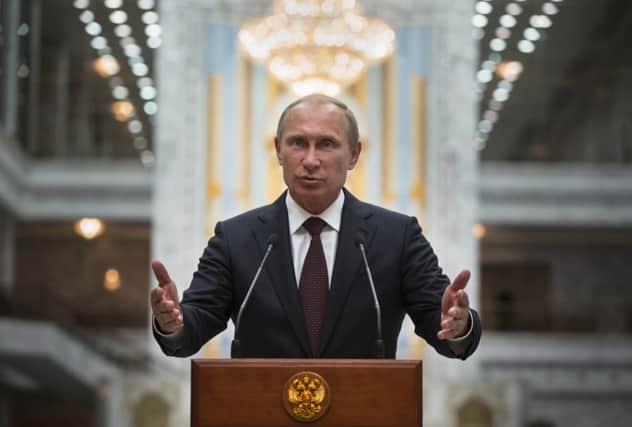Europe left ‘impotent’ over Russian threat


General Sir Richard Shirreff, who stepped down from his post as Nato deputy supreme commander earlier this year, also insisted nothing should be ruled out in the fight against Islamic State (IS) in Iraq and Syria.
In a wide-ranging interview with BBC’s Newsnight, he called on Nato to re-arm if it was serious about defending itself in the future.
Advertisement
Hide AdAdvertisement
Hide AdAsked about the crisis in Ukraine, he said: “Nato would be very hard-pressed and they would find it very difficult to put into the field, at sea or into the air the means required, particularly on land I would assess, to counter any form of Russian adventurism.
“Certainly, western Europe would not be able to defend in my view against Russia without significant support from the Americans. Nato would find it really difficult to get a division [20,000 soldiers] out of the door in quick time. Because, certainly in western Europe, what we have seen progressively is a dismantling of military capability.”
He accepted that advocating re-armament would be unpopular, but added: “It is a message our political leadership need to take home and listen to and act on if they are serious about ensuring that Nato has the means to defend itself in the future.
“It is going to have to re-arm, it is going to have to rebuild capability. European nations are going to have to put their hands in their pockets to spend more money on defence.”
Currently, just four out of the 28 Nato members spend more than the minimum target of 2 per cent of GDP on defence.
Asked about the situation in Iraq, Sir Richard stressed the threat posed by IS, formerly known as Isis or Isil, had to be eradicated.
He told the programme: “The first priority is to protect but ultimately the priority must be to eradicate IS as an external threat because of the potential impact on the Middle East but also its potential impact, if its incubus is allowed to survive, on our external security. There is [also] a very clear issue as far as internal security is concerned.”
When questioned about whether this meant siding with president Bashar al-Assad in Syria, he replied: “There can be no eradication of IS as a threat without a regional approach.
Advertisement
Hide AdAdvertisement
Hide Ad“IS is operating and has spread into Syria and therefore there is likely to be or inevitably going to be a need to sit down and talk to difficult bedfellows, bad people. It is one thing to say that we are going to deal with it, but you have to back up your words with actions and therefore, in my view, we should rule out nothing. We must apply all the levers of power – political, diplomatic, economic and of course military – but, above all, we need to establish the international political will to deal with this.”